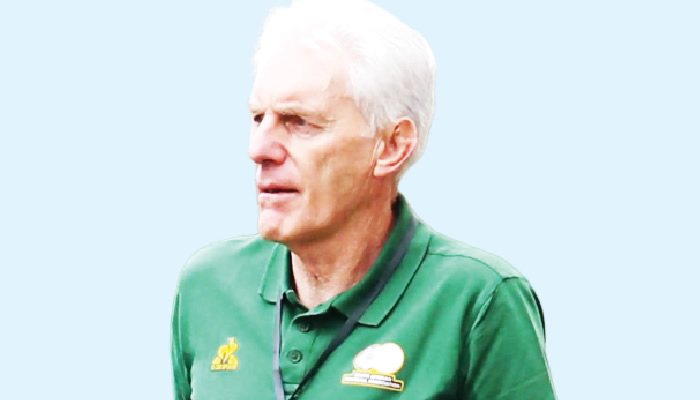The South African national football team, Bafana Bafana, finds itself embroiled in a controversy surrounding the eligibility of midfielder Teboho Mokoena during their World Cup qualifying campaign. Mokoena accumulated two yellow cards in prior matches, rendering him ineligible for the subsequent game against Lesotho, which South Africa won 2-0. This infraction has opened the door for potential sanctions, specifically the forfeiture of the three points earned in that victory. South African coach Hugo Broos, however, maintains a defiant stance, asserting that the complaint regarding Mokoena’s eligibility was not filed within the stipulated timeframe according to FIFA regulations.
Broos argues that while they would be obligated to accept a points deduction if FIFA ruled against them, the established rules dictate that complaints must be lodged promptly. Since no official complaint was registered within the designated period following the match against Lesotho, Broos believes the matter should be considered closed. He emphasizes the importance of adhering to the rules and procedures outlined by FIFA, suggesting that the absence of a timely complaint negates any grounds for retrospective action. He cites the principle of “no complaint, no case” as the justification for his team’s position.
FIFA regulations stipulate a strict protocol for protesting player eligibility. These protests must be submitted in writing to the FIFA Match Commissioner within two hours of the match’s conclusion. Furthermore, a comprehensive written report, including a copy of the original protest, must be submitted to the FIFA Disciplinary Committee within 24 hours. This report must also be emailed to the designated FIFA address. Failure to comply with these stringent timelines results in the protest being disregarded.
Broos alleges that Nigeria, along with other teams trailing South Africa in the group standings, are exerting pressure on FIFA to penalize Bafana Bafana. He accuses these teams of undue interference, highlighting that the match in question was against Lesotho, not any of the teams now pushing for sanctions. Broos appeals to FIFA to uphold its own regulations and resist external pressures, suggesting that Nigeria’s efforts to influence the outcome demonstrate a lack of sporting spirit. He challenges Nigeria to prove their superiority on the field rather than resorting to off-field tactics.
The stakes are high in Group C of the World Cup qualifiers, with South Africa currently leading the pack with 13 points. Rwanda and Benin are tied for second place with eight points each, while Nigeria occupies the fourth spot with seven points. Lesotho trails with six points, and Zimbabwe sits at the bottom with four. The upcoming clash between South Africa and Nigeria carries significant weight, as a points deduction for South Africa could dramatically reshape the group standings and potentially open the door for Nigeria to advance.
The controversy surrounding Mokoena’s eligibility underscores the complexities of international football regulations and the potential for disputes to arise. The outcome of this case hinges on FIFA’s interpretation of its own rules and its ability to withstand external pressures. The final decision will have significant repercussions for the World Cup qualifying hopes of several nations in Group C, particularly South Africa and Nigeria. The match between these two rivals, scheduled to take place in Bloemfontein, is now imbued with added tension and significance in light of the ongoing controversy.














